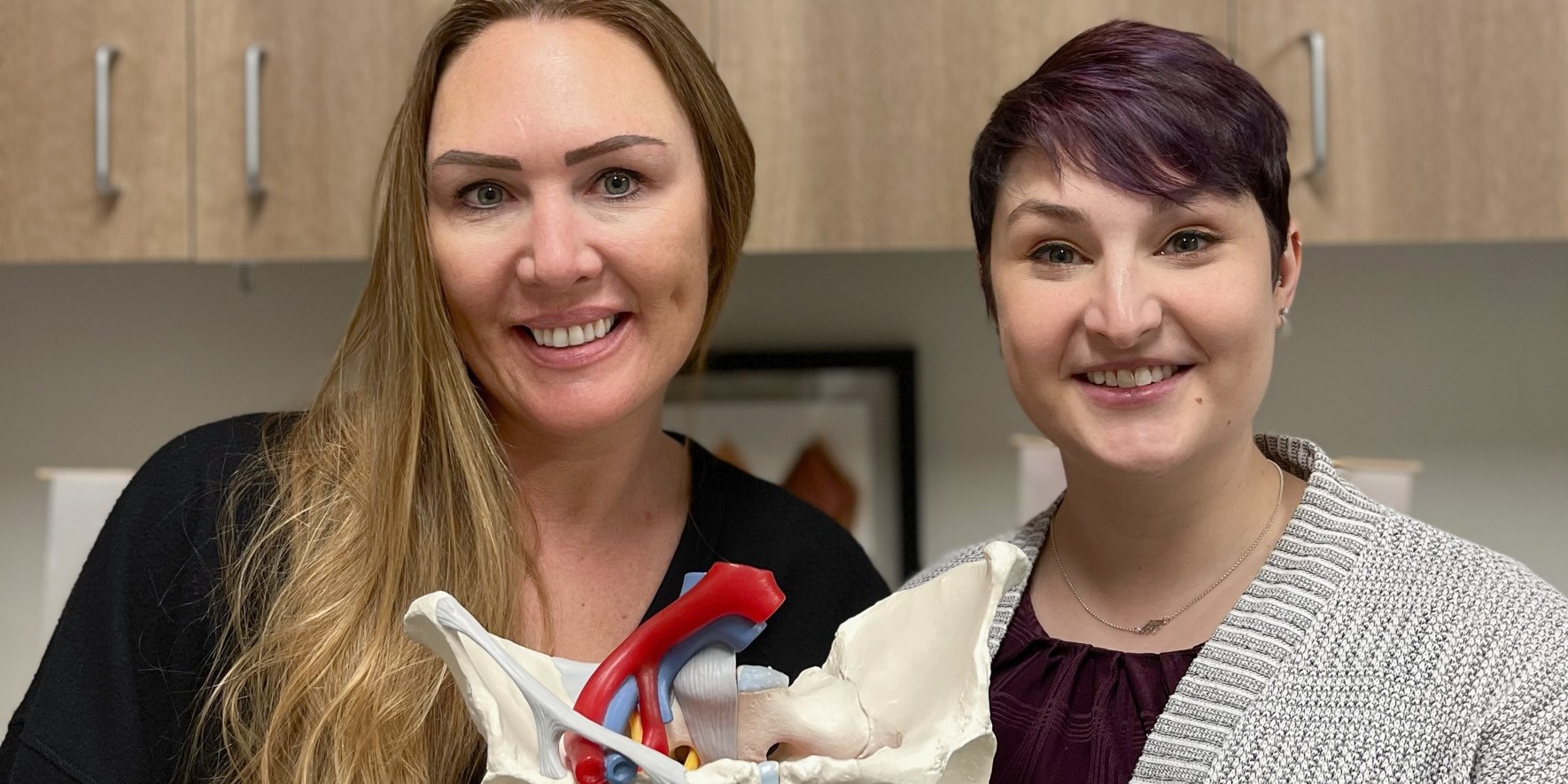
Erica Vitek, MOT, OTR, BCB-PMD, PRPC has attended extensive post-graduate rehabilitation education in the area of Parkinson disease and exercise. She is certified in LSVT (Lee Silverman Voice Treatment) BIG and is a trained PWR! (Parkinson Wellness Recovery) provider, both focusing on intensive, amplitude, and neuroplasticity-based exercise programs for people with Parkinson disease. You can learn more about this topic in Erica's remote course, Parkinson Disease and Pelvic Rehabilitation.
Does the person with Parkinson disease sense where to contract their pelvic floor and the level of contraction they need to overcome the strength of the urge they experience? The sensorimotor deficit that we can visually observe as degradation in movement amplitude in the limb motor system, for example shuffling steps and micrographia, is also suspect in the pelvic floor. Also, consider the lengthening of the pelvic floor that must occur for emptying the bowels. Adequate descent amplitude of the pelvic floor and proper coordination with the abdomen to do so may also not be sensed. Further, strengthening of the pelvic floor is an effective technique for improved sexual health functioning, but may also be challenged by impaired sensorimotor feedback. Treatment of this sensorimotor mismatch in the pelvic floor in a person with Parkinson disease requires specialized expertise and feedback from an OT or PT who treats pelvic floor dysfunction and understands how the neurodegeneration affects their abilities.
When most people think about people with Parkinson disease, they think about stooped posture, shuffling gait, slow and rigid movement, balance difficulties, and tremoring. Often these motor symptoms are the main target of pharmacological treatments with neurologists and many experience positive functional gains. Non-motor symptoms, however, can be more disabling than motor symptoms and have significant adverse effects on the quality of life in people with Parkinson disease.
The pharmacologic management of non-motor autonomic dysfunction, including urinary, bowel, and sexual health impairments, is often ineffective, not supported by adequate research, or causes intolerable side effects for people with Parkinson disease. In a recent article titled “Update on Treatments for Nonmotor Symptoms of Parkinson’s Disease – An Evidence-Based Medicine Review.” Seppi, K, et al., 2019, the authors state this about the use of a pharmacological treatment approach - “Before attempting any treatment for lower urinary tract symptoms, urinary tract infections, prostate disease in men, and pelvic floor disease in women should be ruled out.” It is rare to see a mention of the pelvic floor within the literature that addresses helping people with Parkinson disease.
Pelvic rehabilitation specialists have a unique opportunity to step in and help these individuals improve their quality of life and many neurologists are unaware of the benefits our services could provide for their patients. Please join me in an exciting dive into understanding the physiology of how Parkinson disease affects a person’s pelvic health and develop your skills to effectively assess and develop treatment plans to change the life of these individuals.
Here is a sneak peek acronym into some of the teaching strategies discussed in Parkinson Disease and Pelvic Rehabilitation!
- P - Pacing
- A - Amplitude training
- R - Reinforcement feedback loop
- K - Kinesthetic training
- I - Internal cue restoration training
- N - Neuroplasticity training principles
- S - Sensorimotor retraining
- O - Occupation & goal-directed task training
- N - New skill restoration

Parkinson Disease and Pelvic Rehabilitation
Course Date:
January 27-28, 2023
Price: $300
Experience Level: Beginner
Contact Hours: 10
Description: This course introduces basic neuroanatomy with a detailed overview of pelvic neurophysiology in preparation for an extensive in-depth look at pelvic health treatment options for Parkinson disease. Pelvic floor external and internal neuro-musculoskeletal assessment considerations will be instructed with the understanding that participants have prior experience in pelvic health coursework or pelvic health patient treatment experience.
Preparatory lectures about Parkinson disease will help develop a clear understanding of the neurophysiology of the disease to establish an equal foundation between experienced practitioners and those who have never worked with this patient demographic. Live course lectures deep-dive into characteristic pelvic health conditions that people with Parkinson's disease may face, discuss multiple assessment and treatment planning options, and will also discuss applications for TENS in the neurologic population.
Course Reviews:
- Erica was a phenomenal instructor. She is very passionate and it showed throughout the session. The information she provided was very evidence-based and filled in the gaps for many other types of patients besides patients with Parkinson's. Would highly recommend this class even for learning about treating pelvic floor patients with neurological disorders.
- Erica is a skilled, interesting instructor. Her passion for this topic came through in her teaching style. She enhanced the course with her passion and delivery.
- I learned a great deal about Parkinson's and really felt that the course was worthwhile and valuable. I am very appreciative of the fact that she created a course about this specific topic as there is a large need.
- This was an awesome class. Erica is an incredible teacher! I can't wait to use what I learned this weekend in the clinic to help my patients!









































